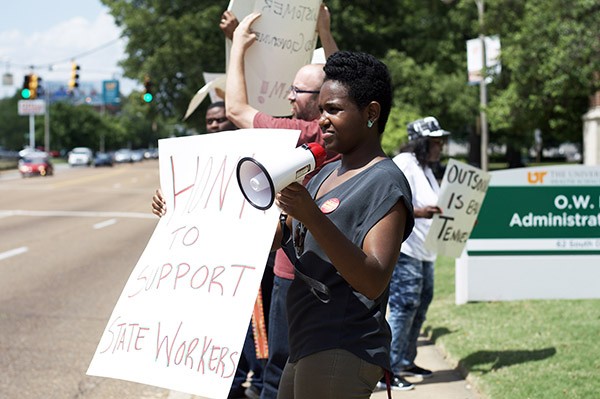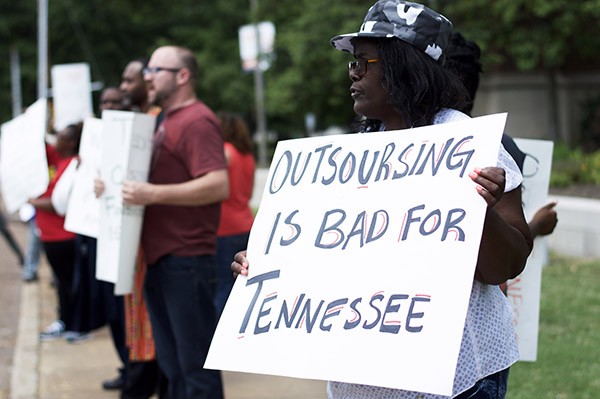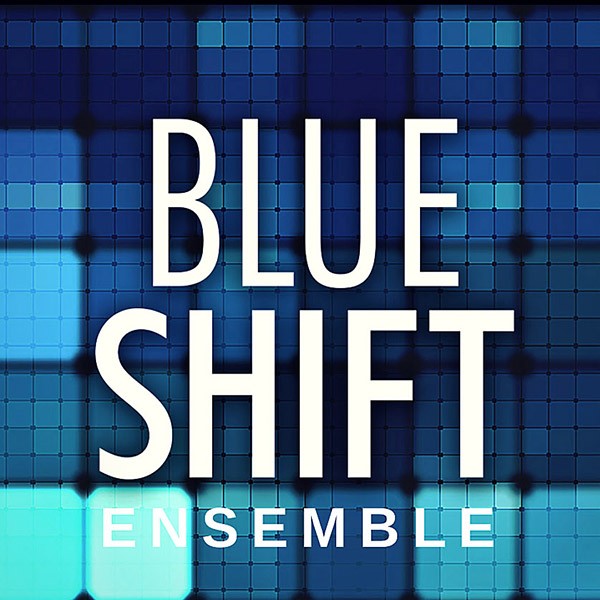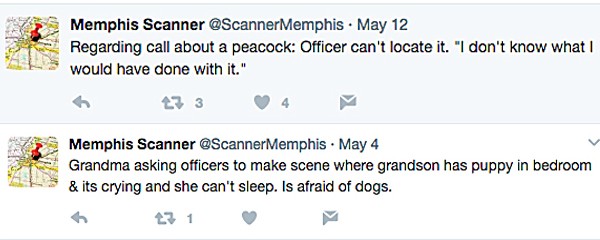On December 1, 2015, Tennessee’s Department of General Services (DGS) filed a request for proposals through the Central Procurement Office for facility management services through a private vendor.
Simply put, more than two years ago, the state quietly sent out feelers. If they decided to outsource or privatize the lowest-paid and most diverse part of their workforce — custodial maintenance and groundskeepers — which private company would be interested in absorbing their employment? And what would they charge?
Two years later, Tennesseans have their answer. Multi-national commercial real estate management giant Jones Lang LaSalle (JLL) inked a deal with the state to outsource facility workers at state-run institutions to the tune of $1.9 billion to be paid from the state to the company over five years.
The biggest targets of the contract are higher education facilities, including the University of Memphis, Southwest Tennessee Community College, and the University of Tennessee Health Science Center. The union representing workers employed by public higher-ed institutions, United Campus Workers, say that more than 760 workers in Memphis alone are at risk for lowered wages and benefits.

Micaela Watts
Across the state, the numbers jump anywhere from 3,000 to 10,000, depending on who you ask. But even if the scope of the contract is considered small in contrast to the population of the state, the move itself is unprecedented. No state has attempted to auction off swaths of campus workers’ jobs.
As of today, Tennessee, under Governor Bill Haslam’s administration, is making fast moves to become the first to do so. Repeated talking points are savings to taxpayers and public universities, which will theoretically, in turn, prevent raises in tuition.
But as of press time, there are several unknowns — the number of workers affected, what their new salaries and benefits packages will look like, and how the contract will affect smaller districts that house state-run prisons and other facilities that are employment bedrocks in sparsely populated areas.
What is known is that JLL, a company that Haslam has invested in to an unknown tune (more on that later), is about to rake in billions in profits, and thousands of Tennesseans will be shuffled from the public sector to the private sector. Read on to find out how you sell a state, one workforce at a time.
BURNING QUESTIONS: VANILLA RESPONSES
In late April, after the state prematurely and quietly pulled the trigger on the outsourcing contract, bipartisan opposition went from tepid to boiling. Seventy-five of the state’s 132 lawmakers signed a letter penned to Terry Cowles, the director of the Office of Customer Focused Government (OCFG), the office that will oversee the outsourcing.
The letter urged Cowles and the comptroller’s office to slow down the contract office until more solid information was known about the cost and the workers affected. Eighteen of those legislators requested economic impact statements specific to their district.
All 18 legislators received the same response, absent of district-specific information. Bob Oglesby, a commissioner with the DGS, floated the same number to all of them — $155.5 million in savings over five years.
“Obviously, if more authorized entities [contract speak for universities] participate, the savings will be even greater,” Oglesby wrote. The commission also pointed to savings accrued already from the state capitol facilities previously managed by JLL — $26 million over a three-year contract.
Though the state declined to provide district-specific information to representatives, the contract was approved by the comptroller’s office anyway and declared effective on May 26th.
John Ray Clemmons, a Democratic representative for part of Nashville and an established critic of the state’s outsourcing quest didn’t hold back. “There’s been absolutely no transparency in this process,” Clemmons said. “Their response was neither sufficient nor district specific. They responded with vanilla information.”
Another Nashville Democrat, Bo Mitchell, echoed his colleague’s response. “The bottom line is that privatization is harmful for state employees, public servants that have worked so hard for this state. Now they’re going to lose those jobs for corporate greed.”
Pointing to Tennessee’s privatized prisons as a cautionary tale, Mitchell warned that the contract is more of the same — sham numbers, false savings, and corporate greed. “I call on anybody in the state to release numbers that prove that this is helpful to state employees,” he said.
As of press time, no such numbers have been released, and they likely won’t be even after this story goes to print. All concerned departments in state government will insist that’s because too many variables hang in the balance. After all, it’s not even known at this point which facilities and universities will choose to “opt in.”
The OCFG has pointed to the “opt-in” option repeatedly as the contract’s major safety lever.
“This is really about what makes sense for each institution,” said Michelle Martin, spokesperson for the OCFG. And while the OCFG has maintained that autonomy still reigns supreme for each institution, United Campus Workers drew no comfort from the officials from OCFG seen touring campuses across Tennessee, just days before the contract was signed.
LOCAL COLLEGES WEIGH IN: CUE CRICKETS
Amid the protest and touting of the outsourcing plans, one group of voices remains glaringly absent from the official process — the state employees who actually stand to be affected.
To date, not one meeting has been held between the OCFG and workers in state-run facilities. No major university or college has taken it upon themselves to do so either.
To those uncertain about their future employer, the silence is deafening and has prompted civic action.
Three days before the contract was signed, a week before it was to be presented and on record to the public, UCW members and University of Tennessee Health Science Center workers gathered at their employer’s administrative building. Cowles was rumored to be inside, supposedly touting the benefits of the contract with JLL.

Micaela Watts
“If you’re going to outsource someone, you should give us the benefit of the doubt from the start and let us have some input in it,” said Charles Kendricks, a specialized carpenter at UTHSC.
“We don’t know the impact this is going to have on minority workers, on single mothers, or on veterans,” said Kendricks, a veteran himself.
The protest Kendricks attended was small, fewer than 30 people. But that’s been par for the course for the majority of the process. Campus workers and university students have spearheaded the majority of public outcry against the contract, going so far as to unroll a scroll of more than 6,000 signatures from individuals opposed to the plan in the state’s Capitol.
Still, the efforts by student and union organizers have been loud enough that no major university president is in the dark about opposition to outsourcing. But since the contract’s signature by both parties and approval at the comptroller level, no major university is willing to indicate whether or not they will sign on. Only the University of Tennessee system came close.
“Each campus within the University of Tennessee will meet with the proposed contractor and receive information to help determine whether contracted services would be in the best interest of the campus,” said David Miller, CFO for the UT system.
Miller added that each UT campus will present their individual decision to the board of trustees at a later point in the year. The University of Memphis has effectively washed its hands of the decision and deferred the future of more than 500 workers to the university’s independent school board.
A U of M student group, the Progressive Student Alliance (PSA), has been dogging university president David M. Rudd — and, occasionally, Haslam — about the decision at every opportunity.
PSA member Lindsey Smith said that Rudd had declared the matter as being out of his hands. “He’s told me that he’s personally against it, but that it’s not up to him but up to the school’s board,” said Smith.
The board’s chairman, FedEx’s CFO Alan Graf, said that the matter has not been discussed and that the next board meeting would occur on June 6th, and that it would be open to the public.
Graf didn’t say whether the privatization matter would be discussed and when asked for any update following the comptroller’s approval and the contract’s effectiveness, U of M spokesperson Gabby Maxey said that the outsourcing matter was not on the June 6th agenda and that the university had no additional comment, still.
Numbers provided by the campus workers’ union show that roughly 500 people work in building maintenance and custodial services at the U of M and that staff has seen reduction in the past years, to the point that some custodial staff are charged with cleaning entire buildings by themselves at night after classes have mostly dispersed.
And though these numbers aren’t readily available, a brief stroll around the campus seem to confirm findings that jibe perfectly with a study done on privatization and its effects by research and policy center In the Public Interest: The majority of U of M campus workers are women and minority, demographics that are employed by the public sector at high rates.
The study reads, “When contractors degrade jobs, taxpayers make up the difference through food assistance, emergency health care, and other public support programs.”
Should workers like Kendricks at UTHSC see their worst fears come true, outsourced employees will find themselves on the receiving end of reduced wages and benefits, and taxpayers savings through privatization will evaporate as additional federal and state assistance could be needed to supplement the loss in wages.
THE LEGISLATIVE DODGE
While the UCW represents much of the opposition in larger metro areas that are home to many higher education institutions, the Tennessee State Employees Association (TSEA) is the organization that rallies behind state workers at parks, prisons, and smaller state facilities.
TSEA president, Randy Stamps is a former Republican state representative, and he’s troubled by the tempo and secrecy of the plan. “It’s alarming, the pace of public outsourcing taking place in Tennessee,” said Stamps. “We have it on several different levels — state parks, higher education institutions, and the department of general services.”
Stamps had been long critical of the state’s efforts to privatize the Inn at Fall Creek Falls, one of Tennessee’s most popular state parks. That effort recently sputtered to a stop when no companies returned with a bid for state park facility management.
“When you decide to privatize state parks — including their inns and marinas — we feel like that’s a public policy decision, and the legislature should be involved in it,” said Stamps.
The legislature wasn’t involved in the process, but instead could only submit letters urging for more information and a halt to the process — efforts which were ignored.
As far as how a decision of this size and scope could legally be made without legislative input, Stamps points to a procurement act authored by state senator Bill Ketron in 2016. The act grants total autonomy to the state in pursuing public-private partnership.
Stamps insists that Ketron, who was unavailable for comment, believes his own piece of legislation yielded results entirely out of line with the original intention. “It gave a lot more authority than he intended to give,” Stamps said, adding that Ketron will be working with TSEA over the summer to rein in some of the language around contract oversight.
“He doesn’t feel like the transparency he intended is available,” said Stamps.
Even before the procurement act was passed, Haslam had already been in the process of parceling off state responsibilities and services to JLL for years, starting just after he took office in 2011. The first contract signed with JLL was a real-estate-management contract. Relatively small in comparison, it yielded the management of Tennessee’s real estate portfolio to JLL.
The next contract with JLL was inked in 2013 and ceded facilities management of state capitol buildings to the company. That contract was not renewed when it expired in 2016, since those buildings could be covered under the latest outsourcing plan.
Tennessee’s comptroller office found several violations of that contract, however, including JLL’s failure to submit timely building inspection reports.
Bit by bit, Haslam has been transferring power to the real estate management behemoth, in spite of repeated criticism of his previous ties with the company before taking office. Haslam’s current JLL investments are in a blind trust while he is in office, and his holdings pre-election are largely unknown, since, much like President Trump, Haslam has refused to release his tax returns. And Haslam has even signed into law a bill that effectively eliminated any Tennessee politician’s requirement to do so.
JLL: IT WILL ALL BE OKAY
The company that may or may not soon become the employer for thousands of state employees broke its silence on the issue the day the contract went into effect.
In a statement, the company assured Tennesseans that employees who transition to JLL “will have a compensation package, including benefits, equitable to their state compensation.”
Joe Hall of Hall Strategies, the public relations firm representing JLL, insisted that the move to JLL often ends up being more beneficial to the employee than employment with the state.
“Former State of Tennessee employees on the JLL team now earn approximately 38 percent more,” Hall said. He also adds that JLL employees receive additional professional development that furthers their skill sets and marketability.
According to Hall, JLL is able to produce savings not because the company lays off workers and slashes wages, but because they specialize in key areas of cost savings: namely energy savings, purchasing power, and self-performance, erasing the need to contract out any large capital projects.
“We recognize that job security is an extremely important issue; we stress that the jobs at these facilities are secure,” said Hall. “It is a priority to JLL to work collaboratively with college and university leadership to directly engage employees and assure them of that fact and highlight the opportunity available at JLL.

Micaela Watts
WAITING ON A SIGN
For all the efforts made by the OCFG and JLL to soothe workers potentially affected, none of it is swaying the contract’s harshest critics.
The state has stuck to the main talking points consistently, and detractors have countered with one argument, essentially, “Show us the proof.”
One thing is certain, though, the contract has been signed, stamped for approval, and is in effect. The rest depends on the state’s universities to opt in or opt out. No doubt, they’ll have UCW in their ears every step of the way until they make a decision.
Thomas Wayne Walker, the spokesperson for the union, says he stopped being shocked by the state’s actions a long time ago. Instead, he and the union will keep insisting the universities take heed and examine every loophole they feel exists in the contract.
“The question is,” said Walker: “Why is Haslam so hell-bent on signing this contract, even though nobody in Tennessee seems to want it?”
Editor’s note: David Roberson, Director of Communications for the Tennessee Department of General Services responds to our story:
I’m writing regarding some factual errors in your story “Outsourcing Tennessee.”
1. “…the state quietly sent out feelers…” – This RFI was posted on the state website, exactly the same way we put out hundreds of RFIs, RFQs, and RFPs each year, and in the same place that our vendors know to look for them. We want maximum response to these requests, so there is no reason we would issue them quietly. We didn’t.
2. “No state has attempted to auction off swaths of campus workers’ jobs.” – The contracting process cannot with any accuracy be called an auction since cost is only one of several elements considered. Also, contracting with external vendors for work formerly done by campus employees is widely practiced, in Tennessee and elsewhere. Many universities in Tennessee already contract out their food service and custodial work, and some contract out their groundskeeping – all of which are jobs formerly held by state employees. The business case for this new procurement, posted on the CFG website for many months now, specifically cites the experience of Texas A&M University in contracting out its facilities management. The National Association of College and University Business Officers even held a conference on outsourcing in 2015 (https://www.insidehighered.com/news/2015/07/21/institutions-outsource-they-should-keep-their-mission-and-vendor-close). Saying that no state has done this before is not remotely accurate.
3. “JLL…is about to rake in billions in profits….” The estimated maximum liability for this contract is $1.9 billion, and the vast majority of that (about 96%) will be in pass-throughs and cost recovery. The remaining 4% would constitute JLL’s and the Alliance Partners’ profits (or management fees). Please see attachment F3 of the contract, where you can see details for the cost proposals of specific institutions.
4. Your paragraph describing the history of JLL’s contracts with the state contains several errors. The first contract JLL signed was for a facilities assessment, and it was followed by a second contract for facilities management for properties operated by the Department of General Services. An amendment to that contract required JLL to act as a lease broker for the state. That amendment expired in 2016 and was not renewed. The original contract for facilities management was for five years and is still in effect.







